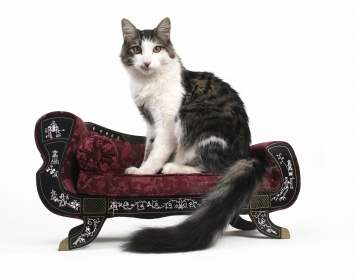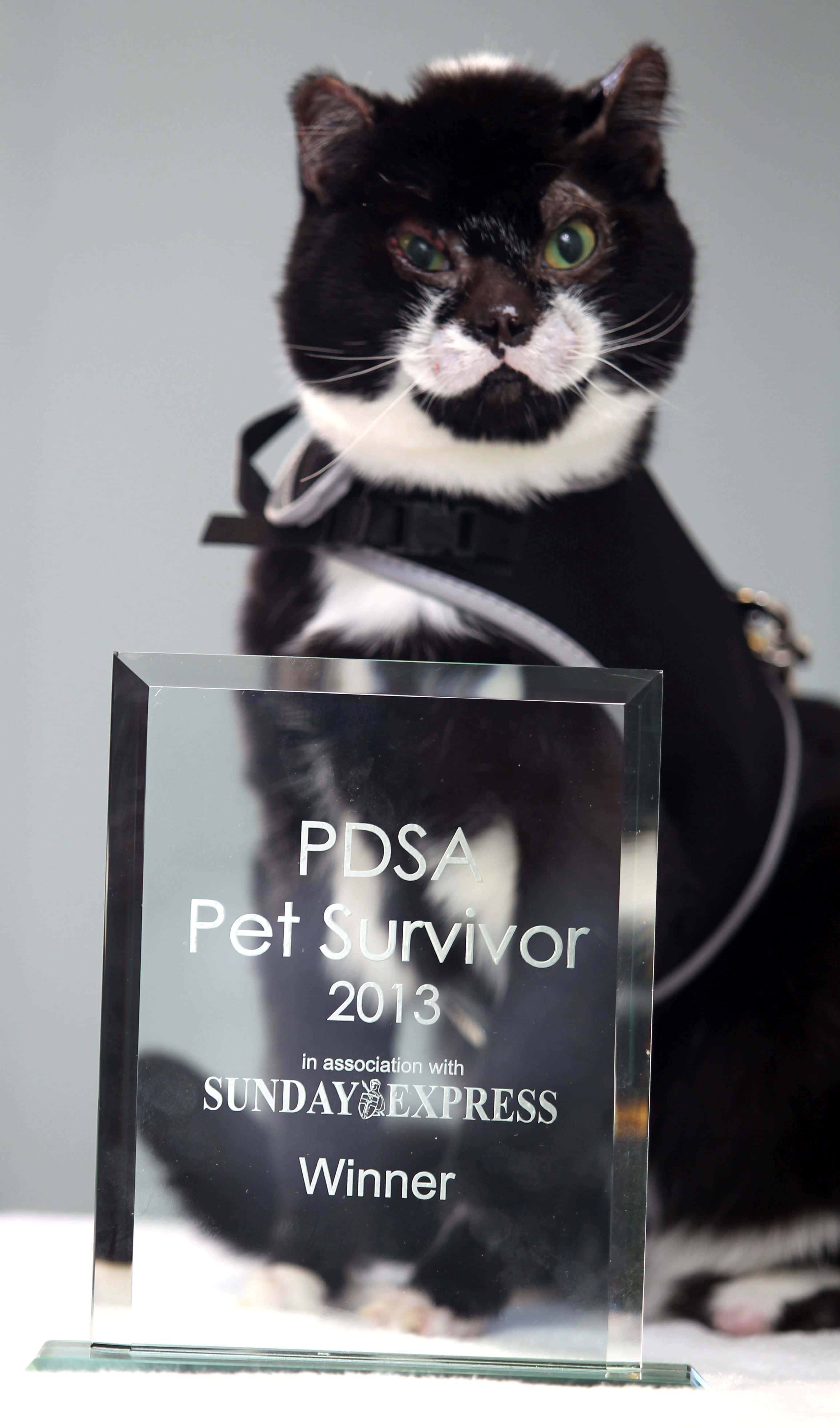To rain cats and dogs – esik, mintha dézsából öntenék, mintha cigánygyerekek potyognának az égből
This phrase means “to rain very heavily,” but why cats and dogs? Despite the fact that these two animals generally prefer to keep their distance from one another, cats and dogs have been paired in expressions to evoke strife or hostility since the 1570s. Their coupling in this tempestuous expression could be a gesture toward the inhospitable conditions a heavy rainstorm produces. The phrase first appeared as “it shall raine..Dogs and Polecats.” Polecats might refer to ferrets or skunks.
Cat’s pajamas – csodás dolog, nagy szám, menő
American cartoonist Thomas Aloysius “Tad” Dorgan is often credited with coining this colorful phrase, which is used to refer to someone or something wonderful or remarkable. It is one of a handful of slang expressions to emerge in the early to mid-1920s featuring animals. Bee’s knees, canary’s tusks, and flea’s eyebrows are a few of the others.
To make a cat laugh – nagyon vicces, nevettető
This lesser-known expression is said of something very funny, as in “That YouTube video was enough to make a cat laugh.” Fittingly, playwright James Robinson Planche used it in 1838 when he adapted the French fairy tale Puss in Boots for the stage: “Allow us just applause to win Enough to make a cat laugh.” The origin on this phrase is unknown, but perhaps it’s a play on what’s widely perceived to be the dignified and composed disposition of the feline.
Curiosity killed the cat – aki kíváncsi, hamar megöregszik, a kíváncsiság árt a szépségnek
Before curiosity, it was care that killed the cat. The phrase care killed the cat appeared in Shakespeare’s Much Ado About Nothing in 1599: “though care killed a cat, thou hast mettle enough in thee to kill care.” In this expression, the word care refers to a burdened state of mind or anxiety, and the phrase is probably a reference to the myth that cats have nine lives, making them difficult to extinguish.
A cat may look at a king – a legkisebbnek is megvannak a maga jogai
This now obscure idiom was used to express the set of things that an inferior may do in front of a superior. In his 1721 Universal Etymological English Dictionary, lexicographer Nathan Bailey referred to this as a “saucy proverb” used by pragmatic persons as a reminder of class etiquette, “for tho’ peasants may look at and honor great men, patriots, and potentates, yet they are not to spit in their faces.”
Let the cat out of the bag – kifecsegni a titkot, eljár a szája
From the cat-o’-nine-tails to the “pig in a poke” scam, there are a number of fanciful stories about the origin of this curious phrase, meaning “to divulge a secret,” but none have been verified. We do know that it’s been with us for a few centuries; the first record of its usage is from 1760, and Charlotte Bronte used it in her 1849 novel, Shirley: “This last epithet I choose to suppress, because it would let the cat out of the bag.” When it comes to the true origins of this phrase, the cat remains very much in the bag.
To turn the cat in the pan – ellentétére fordítani a dolgokat
From wearing pajamas to looking at kings and raining with dogs, cats have found themselves in quite a few peculiar scenarios in the English language. Here’s another one: to turn the cat in the pan was a phrase dating back to the 1430s meaning “to shuffle the order of things to make them seem to be the opposite of what they are.”
source: dictionary.com
Do you remember the idioms? What word is missing from them?
1. to rain cats and ……
2. …… pajamas
3. to make a cat ……
4. …… killed the cat
5. a cat may look at a ……
6. let the cat out of the ……
7. to turn the cat in the ……
Key
1. dogs
2. cat’s
3. laugh
4. curiosity
5. king
6. bag
7. pan
Vocabulary
|
to purr |
dorombolni |
|
to evoke strife |
küzdelmet/harcot kiprovokálni |
|
hostility |
ellenségeskedés |
|
tempestuous |
viharos |
|
inhospitable |
barátságtalan, zord |
|
polecat |
közönséges görény |
|
ferret |
vadászgörény |
|
skunk |
bűzösborz |
|
to coin |
szót alkotni |
|
remarkable |
figyelemre méltó |
|
to emerge |
felbukkanni |
|
bee’s knees |
kitűnő, nagyon jó |
|
canary’s tusks |
kitűnő, nagyon jó |
|
flea's eyebrows |
kitűnő, nagyon jó |
|
playwright |
drámaíró |
|
fairy tale |
mese |
|
Puss in Boots |
Csizmás kandúr |
|
applause |
taps |
|
dignified |
méltóságteljes |
|
composed |
összeszedett |
|
disposition |
természet |
|
feline |
macska |
|
Much Ado About Nothing |
Sok hűhó semmiért |
|
burdened |
megterhelt |
|
anxiety |
aggódás, szorongás |
|
to extinguish |
elpusztítani |
|
obscure |
homályos, kevéssé ismert |
|
inferior |
alsóbbrendű |
|
superior |
felsőbbrendű |
|
saucy |
pimasz, szemtelen |
|
proverb |
mondás, közmondás |
|
reminder |
emlékeztető |
|
patriot |
hazafi |
|
potentate |
nagyúr, uralkodó |
|
to spit |
köpni |
|
cat-o'-nine-tails |
kilencágú korbács |
|
pig in a poke |
zsákbamacska |
|
to divulge a secret |
kifecsegni egy titkot |
|
to verify |
megerősíteni, igazolni |
|
to suppress |
betiltani |
|
peculiar |
különös |
|
to shuffle |
megkeverni |
|
opposite |
ellentét |






